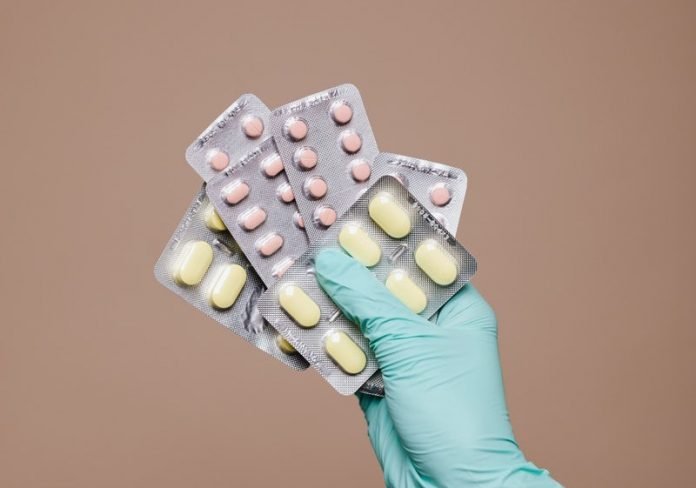
In a new study from the University of Pennsylvania, researchers found nine potential new COVID-19 treatments, including three that are already approved by the Food and Drug Administration (FDA) for treating other diseases.
Although great progress has been made in the development of vaccines and treatments for the SARS-CoV-2 coronavirus, there is still much room for improvement.
In the United States, the only antiviral COVID-19 treatments that have received FDA Emergency Use Authorization—remdesivir and several anti-SARS-CoV-2 antibody preparations—are expensive and far from 100 percent effective.
In the study, the team screened existing drugs and drug-like molecules for their ability to inhibit the replication of the COVID-19-causing coronavirus, SARS-CoV-2.
They assembled a library of 3,059 compounds, including about 1,000 FDA-approved drugs and more than 2,000 drug-like molecules that have shown activity against defined biological targets.
They then tested all of these for their ability to strongly inhibit SARS-CoV-2 replication in infected cells, without causing much toxicity.
Of the nine drugs found to reduce SARS-CoV-2 replication in respiratory cells, three already have FDA approval: the transplant-rejection drug cyclosporine, the cancer drug dacomitinib, and the antibiotic salinomycin.
These could be rapidly tested in human volunteers and COVID-19 patients.
The experiments also shed light on key processes the coronavirus uses to infect different cells and found that the antiviral drug remdesivir.
This drug has an FDA Emergency Use Authorization for treating COVID-19, does appear to work against the virus in cell-culture tests on respiratory cells, whereas hydroxychloroquine does not.
The new discoveries suggest new avenues for therapeutic interventions against COVID-19, and also underscore the importance of testing candidate drugs in respiratory cells.
If you care about COVID-19 treatment, please read other findings of new nasal spray could help prevent COVID-19 transmission and findings of two drugs may help you recover from severe COVID-19.
For more information about COVID-19 prevention, please see studies showing big differences between mild vs. severe COVID-19 cases and studies about common painkillers can boost or suppress COVID-19 depending on timing.
The study is published in Cell Reports. One author of the study is Sara Cherry, Ph.D.
Copyright © 2021 Knowridge Science Report. All rights reserved.



